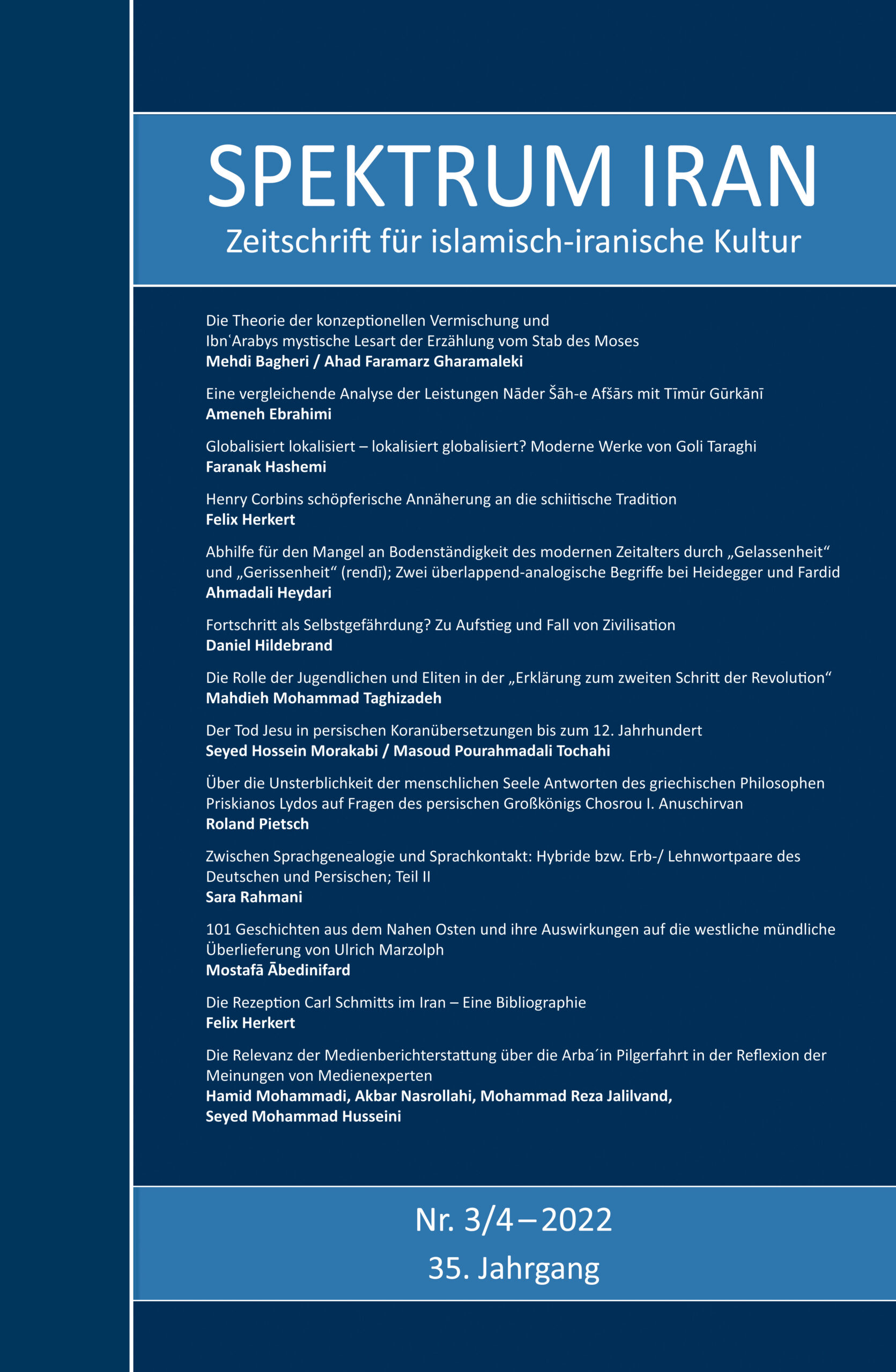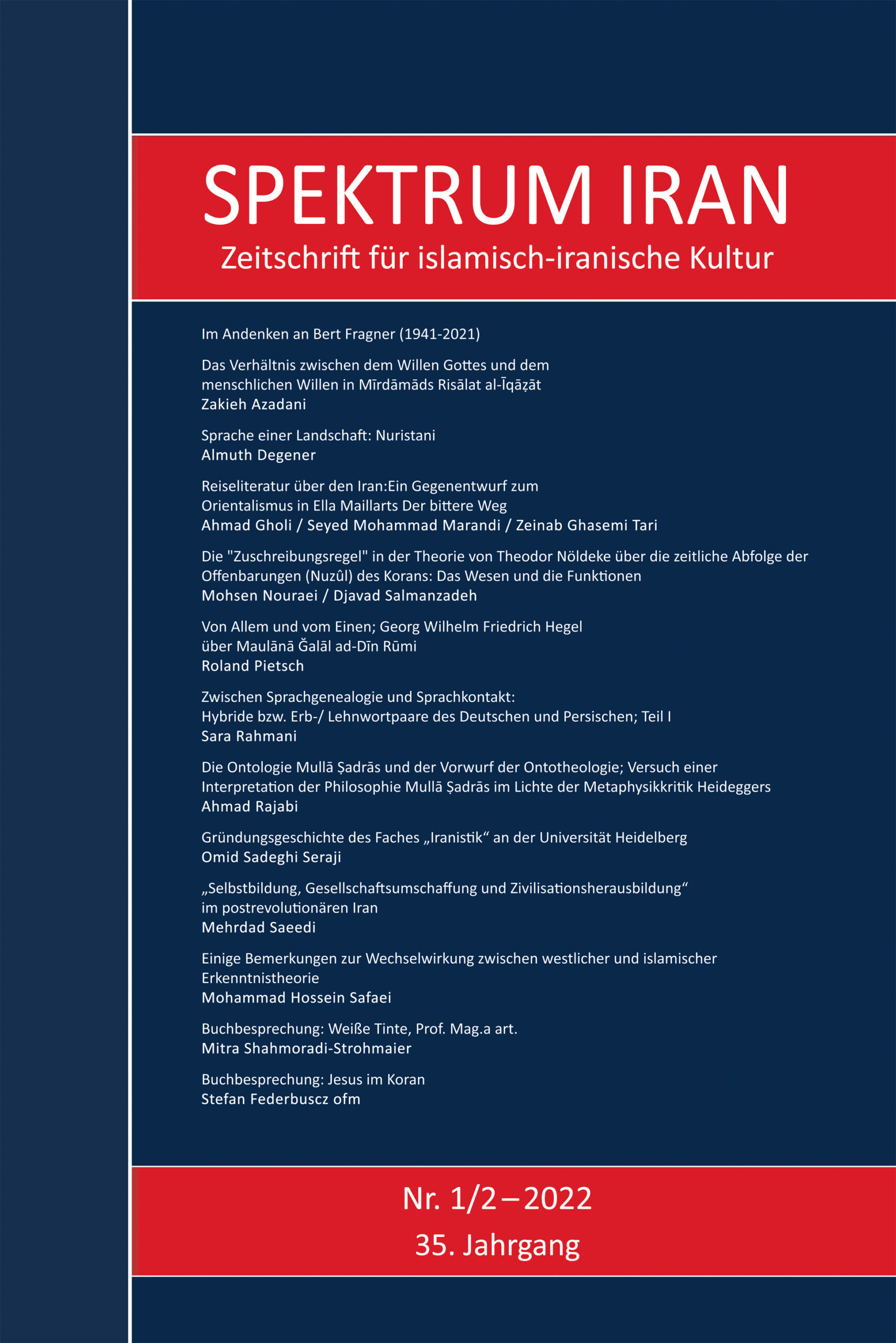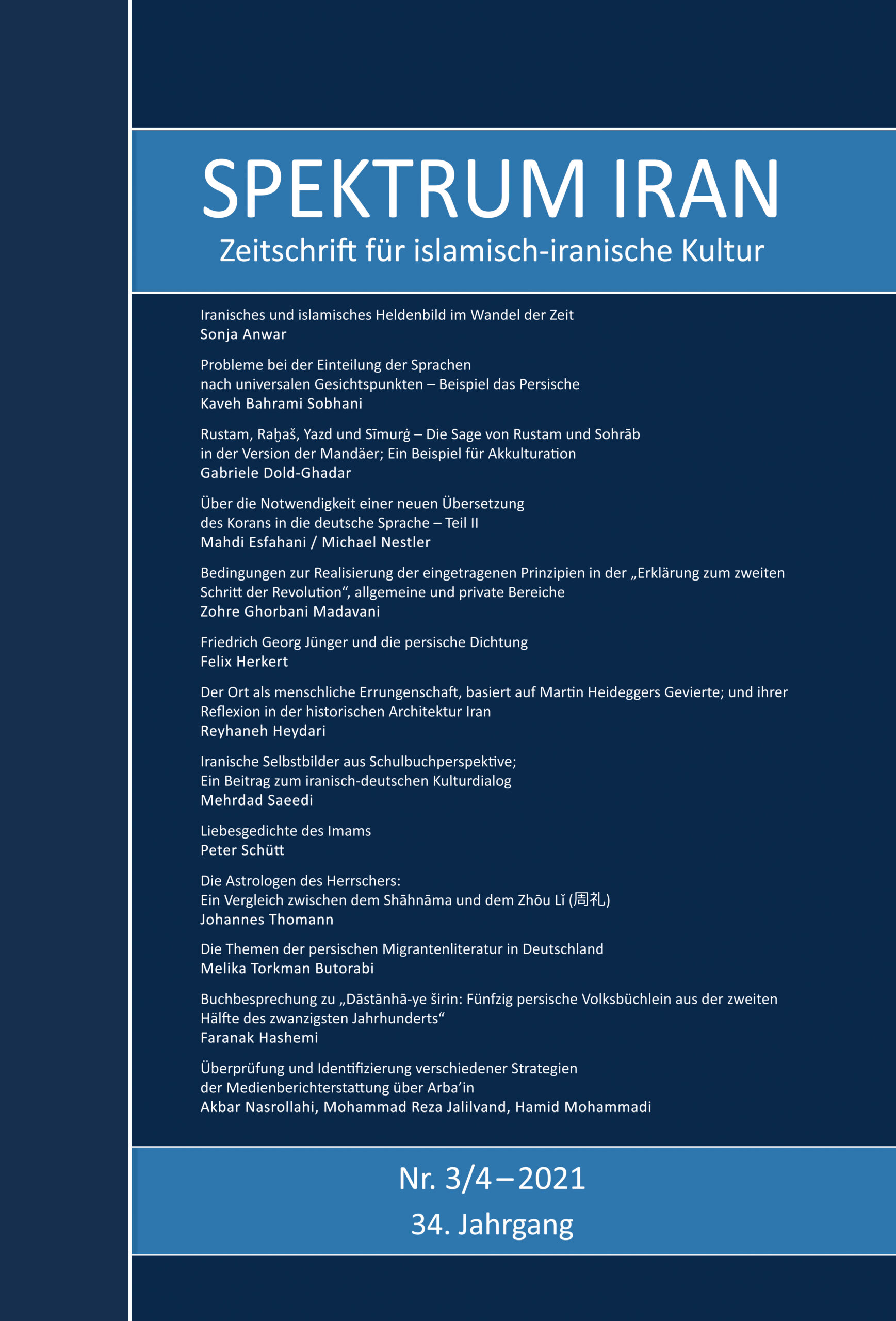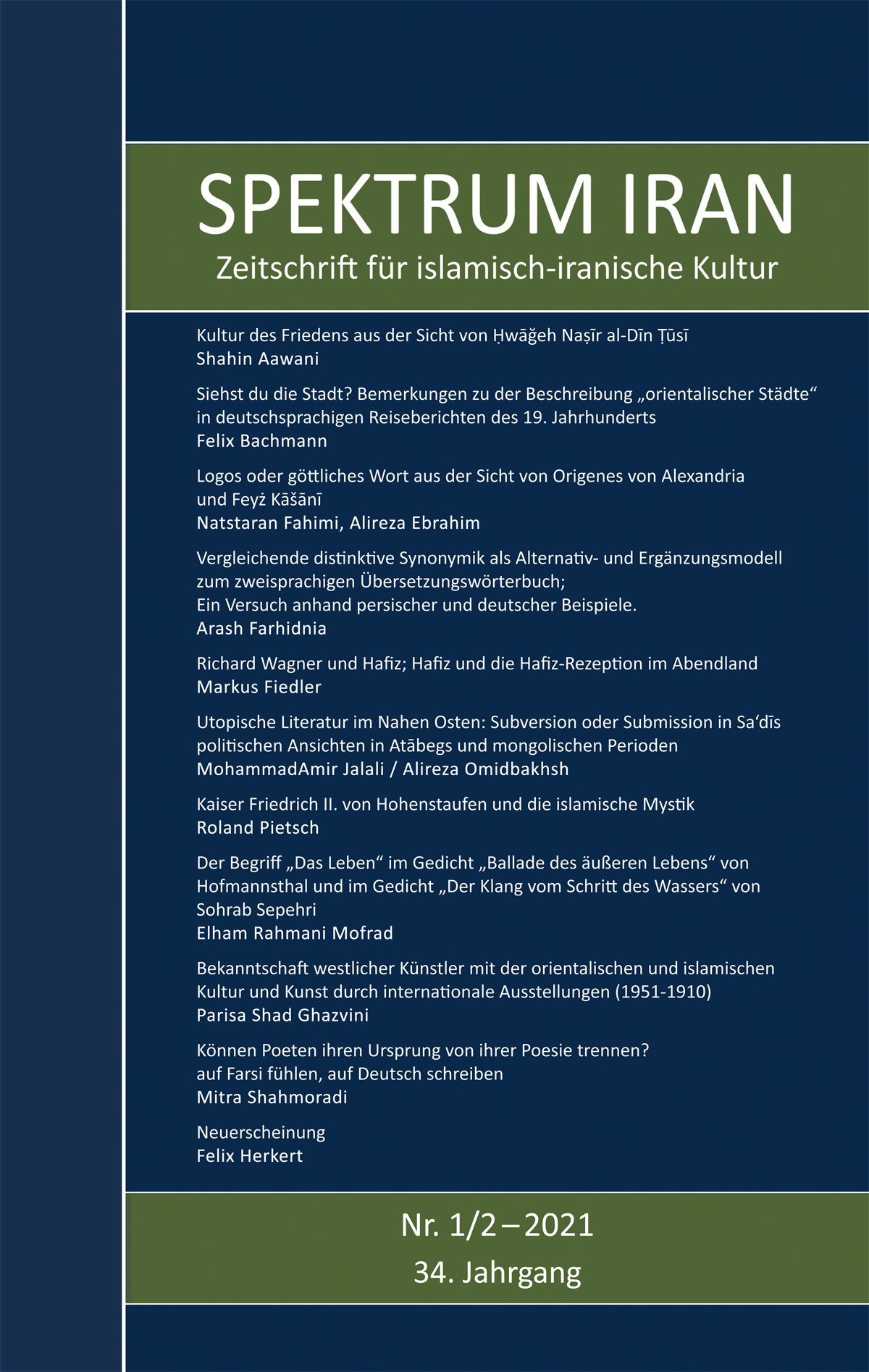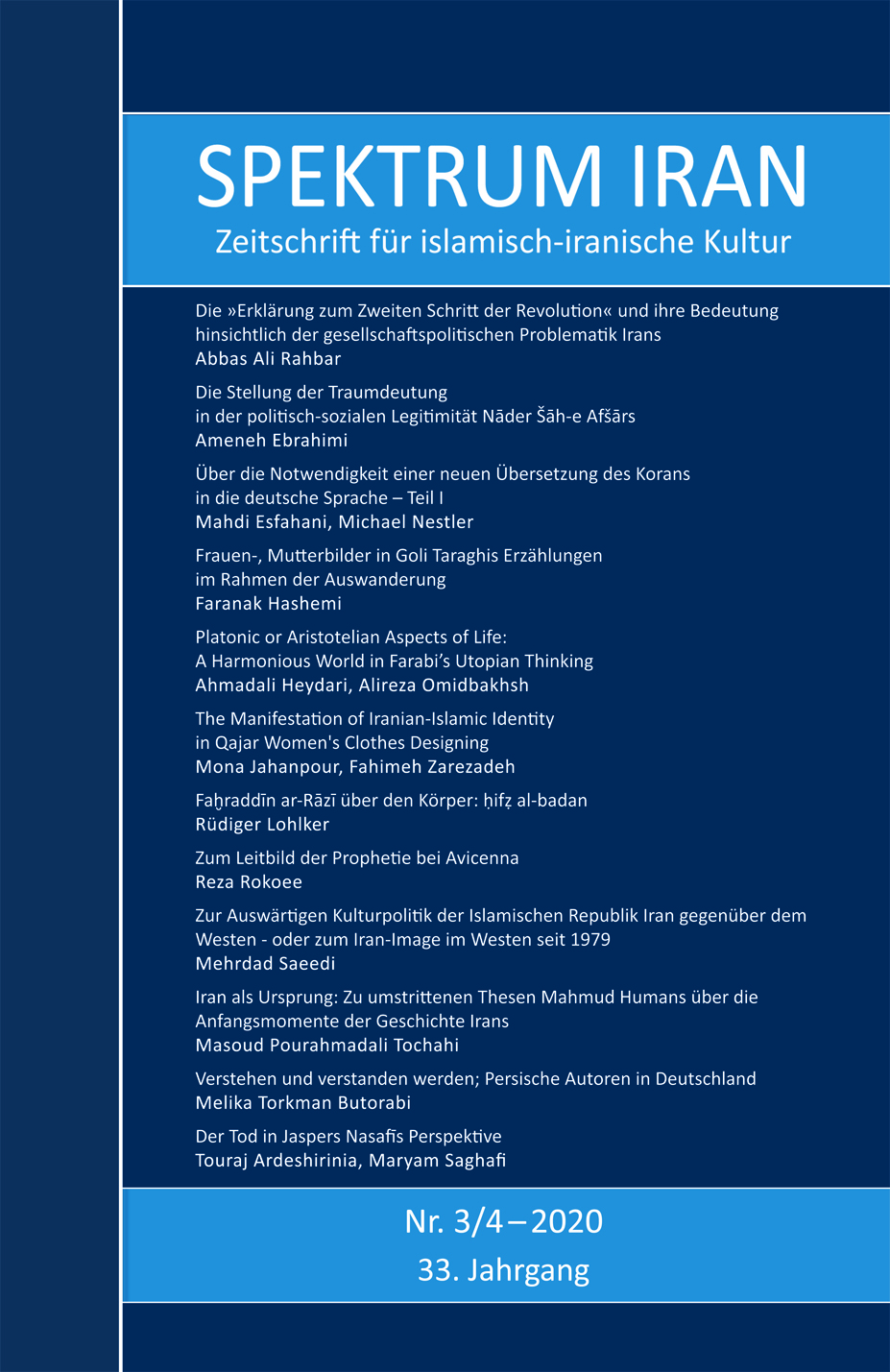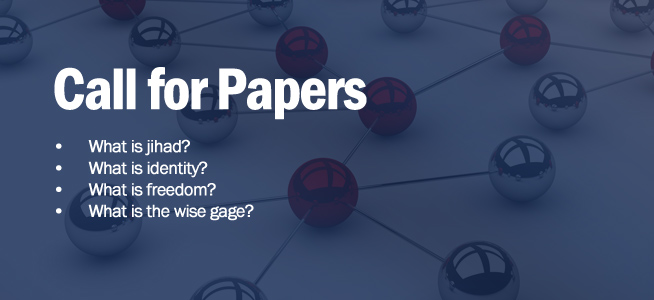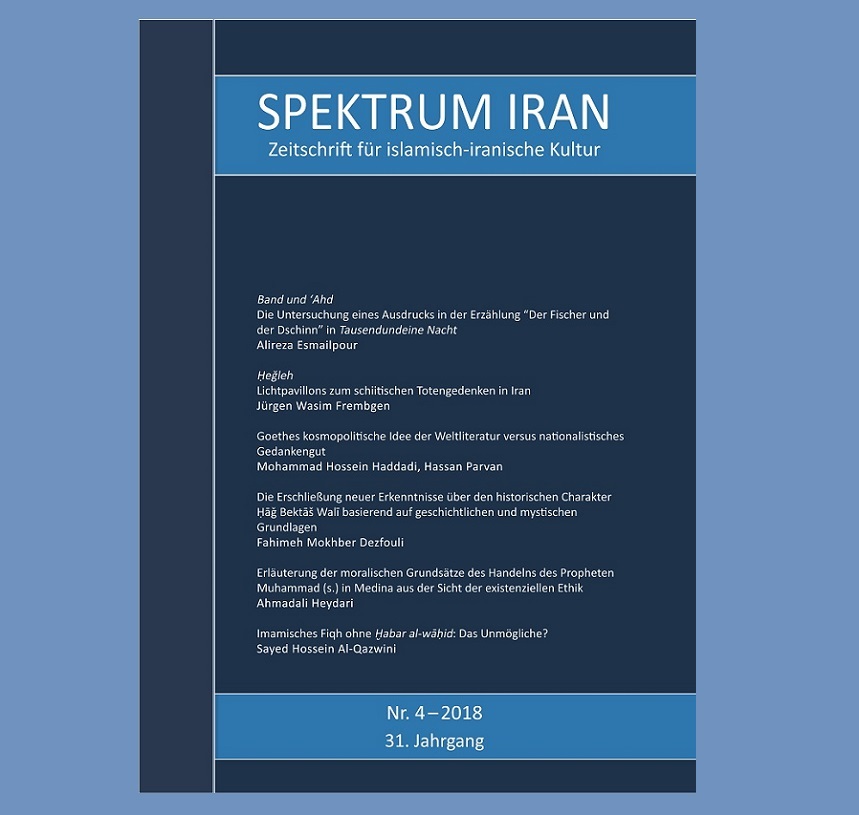Spektrum Iran 1-2016 – Djihad-Perspektiven eines Begriffs
Summarys – Spektrum Iran 1-2016 – Djihad-Perspektiven eines Begriffs
Djihad – Stein des Anstoßes
Peter Antes
Summary
According to Peter Antes, Jihad is too dazzling to consider the terms ›effort, struggle, commitment, diligence‹ towards virtues, most likely on the path to God or in favor of the religion of islam. Muslims differentiate between the small and the great Jihad. In the islamic mystic the great Jihad basically means a spiritual fight against the striving spirit, in the political movement a commitment towards good deeds like the abatement of economic backwardness of a country, or the commitment for the implementation of democracy, freedom and women‘s rights. The small Jihad is directed towards the outside. It includes military conflicts. It is into this context that the expansion as the holy war, politization of the term Jihad and its use in Salafism and Jihadism belong today. All these facts give rise to the necessity of a public debate in the West and among the majority of the Muslims, as the negative reaction of islamic theologists referring to the interpretation of Jihad of the Caliph of the islamic Republic shows.
Djihad – ein multidimensionaler Begriff
unter besonderer Berücksichtigung
der spirituellen Dimension[1]
Rüdiger Lohlker
Summary
According to Rüdiger Lohlker it is necessary to consider explicit terms like Jihad in the context of their usage, instead of ordinarily placing it in the context of military understandings. In this, canonical texts may be considered as religious works on the one hand read indivually and at the same time re-contextualised in the aftermath. Lohlker denotes that the mere military Jihad is a mainly on and off appearance and delivered by the mere radicalisation of certain groups of people. The term, however, in the religious secondary literature is seperated into a small and a great Jihad. The latter means a row of disciplinary measures of the instinctively driven human nature, at the same time a description of the internal soul and spiritual struggle between the orthodox human reason and the sinful temptation. Lohlker concludes that the mere militant interpretation of the term Jihad is stigmatised and not sufficiently explained in order to grasp its conceptual and spiritual context which lies beyond.
Katharsis und großer Djihad
als Befreiung zum weisen Maß im menschlichen Miteinander
Sybille C. Fritsch-Oppermann
Summary
Sybille C. Fritsch-Oppermann discusses the changing relation between cathrasis and the great Jihad in its referable meaning for a release, which leads to a considerable measure for human cooperation. Emanating from Samuel Huntington’s attested but also critisized ›clash of civilisations‹, she explains her thesis, that aggressive structures of religions or their missuse lie in an innate fear of man, which is the activator of xenophobia and the fear of foreign infiltration. In addition the author asks, what is to be done if the common ground of the phobia should be a pre-moral basic emotion, which is shame. Being a good person and political correctness would then rather be in the way, just as demands for absolutism. Rather is it necessary to seperate the basic fear from a political analyses in order to take away all ideological shameful overloading. Catharsis in the Christian and the great Jihad in the islamic context are outlined in their potential, to overcome the self reversal and strive towards a true human self and hence lead to a complete new other. From this position both positions would again become politically relevant.
Der gewaltlose ›Heilige Krieg‹
der Sikh-Religion
Khushwant Singh
Summary
On behalf of original reference towards the Sikh religion, Khushwant Singh outlines aspects of the ›holy war‹. Religion is alien towards a ›holy war‹ with the force of weapons or the overthrough of the government. To eliminate the bad and not the bad person is considered as the holy war. This includes overcoming one’s own mistakes, to strive towards virtues and to stand for justice and peace. As this affords courage they refer to dharam juddh, the holy war. Its weapon is spiritual wisdom. Like a scapel he removes egoism and shortsightedness and maintains the relevant. It helps to achieve knowledge of the soul of the human nature, the interdependences of life and the main reason for egoism, in order to solve the demands of human beings. Terror, corruption, ruthlessness, exploitation or an unhealthy life style are seen as reasons for afflictions of the soul. In order to change the world without side effects a reform of politics, economy and education emanating from contextual ethic values is considered to be necessary.
Hermeneutik der humanistischen
Dimensionen des ›Djihad
Hamid Reza Torabi
Summary
Hamid Reza Torabi mourns the reasons of deformations and missinterpretations of the term ›Jihad‹. He asserts that this term especially outside the context of islamic areas is victim to an academic and medial casualty, which impedes its factual analyses resp. the survey of its true content. Torabi then under consideration of Koranic texts looks at the meaning of the term Jihad in the islamic context. Jihad illustrated in the Qu’ran shows a totally different dimension, than those conceptions that terrorist Jihad groups consider. The author outlines the term in a sense of ›truthful effort‹, whereas a one-dimensional human point of view is central. Torabi therefore concludes that the meaning according to the Western view inwhich the religion and home is protected, is a more or less arbitrarily chosen partial aspect of the term ›Jihad‹.
Djihad als eine Maßnahme
zur Bekämpfung der Armut
Vielfältige Dimensionen eines Wortes[2]
Niloofar und Yasaman Salmani
Summary
Niloofar and Yasaman Salmani complain about the militant meaning of ›Jihad‹ and demand to consider the term in context with the evolvement of the islam. The term here means ›poverty reduction‹. Naturally in those times militant conflicts were unavoidable as the struggle for food, accomodation and weeding areas was a given fact, and also rivalry between the folk people was unavoidable. The bases of conflicts however was mainly the protection of resources for the own people. The authors then look at the nineth Surah of the Qu’ran and notice that militant sects and groups like the Taliban or ISIS falsely interprete the war as such, because they ignore the fact of poverty reduction. The basic means of human affection and human love were ignored along side the fact that islam does not bring death and violence but seeks to inhance the situation of the poor.
[1] Der vorliegende Beitrag ist eine modifizierte Version der Urfassung. Im Wiederabdruck bezieht Rüdiger Lohlker schiitische Quellen in seine Argumentationskette mit ein und rückt mithin die Debatte um den Djihad in ein neues Licht. Ein solches Unternehmen trägt zur Abrundung der Thematik des Heftes bei.
[2] Der vorliegende Beitrag ist von Dr. Ali Radjaie, Universität Arak in Teheran, aus dem Persischen ins Deutsche übersetzt worden.



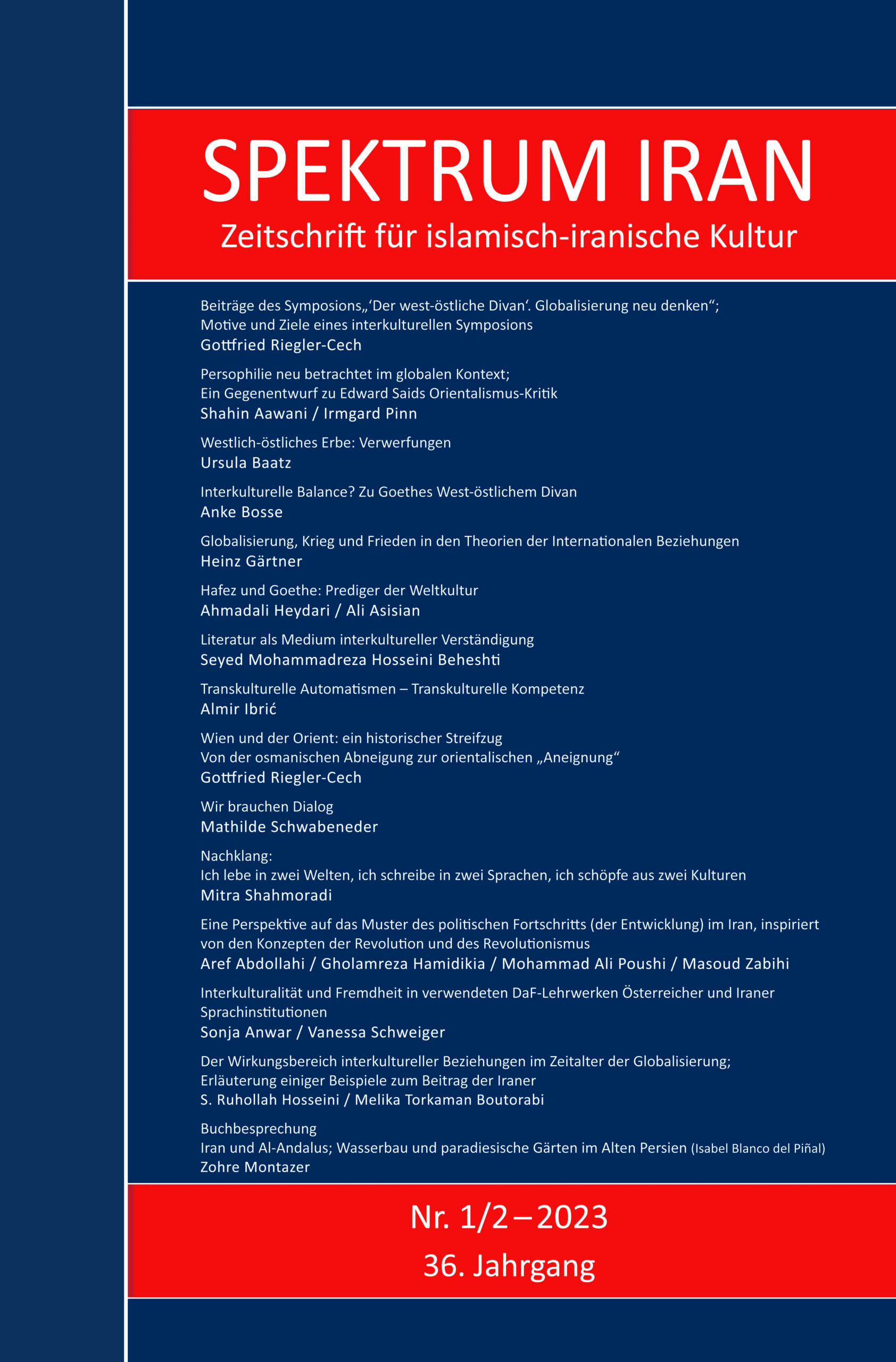 Die Zeitschrift Spektrum Iran mit den Heften Nr. 3 und Nr. 4 des Jahrganges 2023 ist erschienen und mit folgenden Beiträgen verfügbar:
Die Zeitschrift Spektrum Iran mit den Heften Nr. 3 und Nr. 4 des Jahrganges 2023 ist erschienen und mit folgenden Beiträgen verfügbar: 